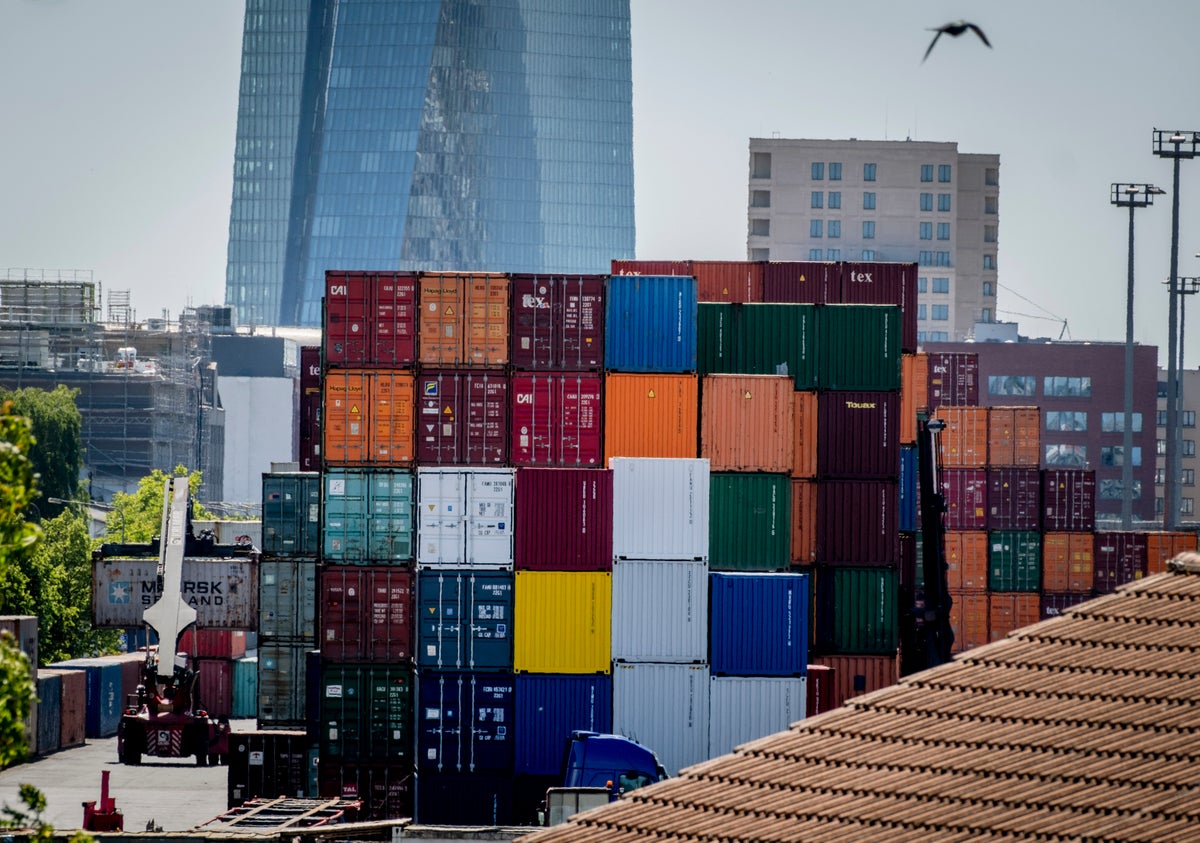
The German economy appears to have returned to slight growth in the April-June period after shrinking for two consecutive quarters, the country's central bank said Monday.
Germany’s national statistics office said in late May that Europe's biggest economy contracted by 0.3% in the first three months of this year, marking the second consecutive decline that is one definition of a recession. Gross domestic product declined by 0.5% in last year's fourth quarter.
In its monthly report, the Bundesbank said economic output appears to have “increased slightly” in the second quarter, without quantifying the expected gain.
It said private consumption apparently stabilized, thanks to a solid labor market, pay increases and the lack of a further significant increase in inflation. It added that supply bottlenecks declined, which together with a solid cushion of orders prevented a worse showing in the industry and construction sectors.
The central bank did, however, point to declining demand from foreign customers, higher costs for financing investments at home and a decline in business confidence. It said the economic recovery over the rest of this year could be “somewhat more hesitant" than it forecast last month.
A month ago, the Bundesbank forecast that Germany's GDP would shrink by 0.3% this year before recovering to grow by 1.2% next year and 1.3% in 2025.
The national statistics office is due to release preliminary second-quarter GDP figures on July 31.







